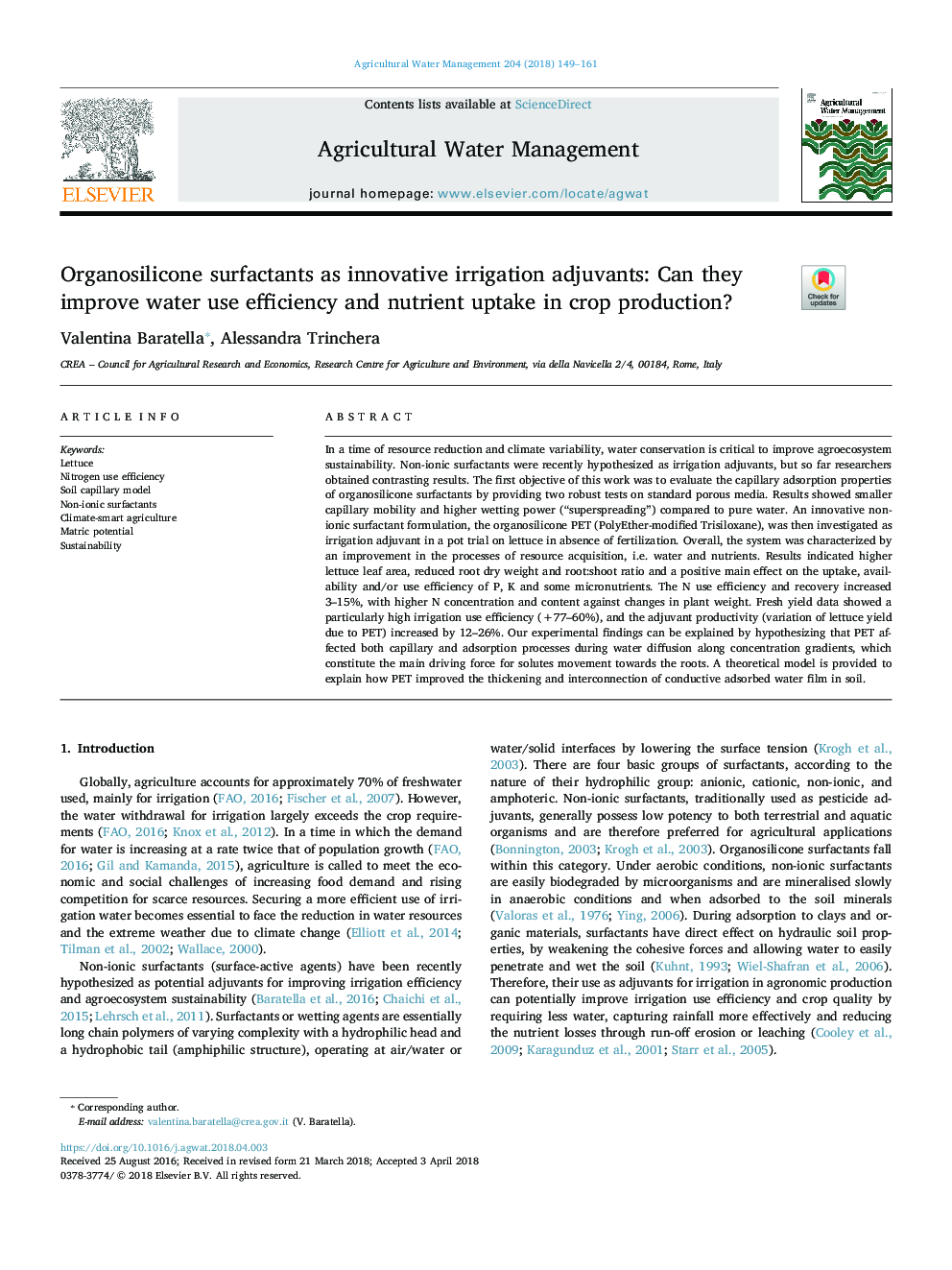| Article ID | Journal | Published Year | Pages | File Type |
|---|---|---|---|---|
| 8872895 | Agricultural Water Management | 2018 | 13 Pages |
Abstract
In a time of resource reduction and climate variability, water conservation is critical to improve agroecosystem sustainability. Non-ionic surfactants were recently hypothesized as irrigation adjuvants, but so far researchers obtained contrasting results. The first objective of this work was to evaluate the capillary adsorption properties of organosilicone surfactants by providing two robust tests on standard porous media. Results showed smaller capillary mobility and higher wetting power (“superspreading”) compared to pure water. An innovative non-ionic surfactant formulation, the organosilicone PET (PolyEther-modified Trisiloxane), was then investigated as irrigation adjuvant in a pot trial on lettuce in absence of fertilization. Overall, the system was characterized by an improvement in the processes of resource acquisition, i.e. water and nutrients. Results indicated higher lettuce leaf area, reduced root dry weight and root:shoot ratio and a positive main effect on the uptake, availability and/or use efficiency of P, K and some micronutrients. The N use efficiency and recovery increased 3-15%, with higher N concentration and content against changes in plant weight. Fresh yield data showed a particularly high irrigation use efficiency (+77-60%), and the adjuvant productivity (variation of lettuce yield due to PET) increased by 12-26%. Our experimental findings can be explained by hypothesizing that PET affected both capillary and adsorption processes during water diffusion along concentration gradients, which constitute the main driving force for solutes movement towards the roots. A theoretical model is provided to explain how PET improved the thickening and interconnection of conductive adsorbed water film in soil.
Keywords
Related Topics
Life Sciences
Agricultural and Biological Sciences
Agronomy and Crop Science
Authors
Valentina Baratella, Alessandra Trinchera,
